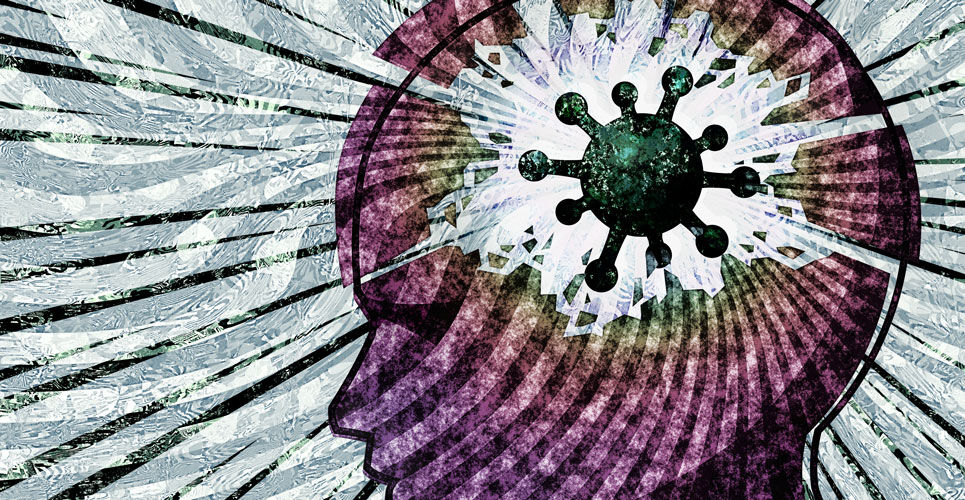Cognitive impairment has been found to persist for at least 6 months after experiencing an acute COVID-19 infection
Cognitive impairment has been found to be present 6 months after an acute COVID-19 infection among hospitalised patients when compared with a similar group of hospitalised patients without the virus. However, while patients also developed new-onset psychiatric diagnoses, this was no different to the incidence among control patients according to the results of a study by researchers from the Mental Health Center Copenhagen, Denmark.
Survivors of COVID-19 are at increased risk of psychiatric sequelae and in one Italian study that followed-up COVID-19 patients 8 weeks after discharged from hospital, the most frequent symptoms were fatigue (46%), dyspnea (30%), insomnia (26%), anosmia (20%), and dysgeusia and palpitation (15%). However, the development of cognitive impairment is not necessarily a unique feature of infection with COVID-19 and research shows that hospitalised patients in medical and surgical intensive care units are also known to be at a high risk for long-term cognitive impairment. Consequently, while there is much current interest in the cognitive sequelae of COVID-19, the incidence needs to be seen in relation to other hospitalised patients.
For the present study, the Danish team undertook a prospective study of all patients hospitalised with COVID-19 and matched them (for age, sex and intensive care unit status) with a group of non-COVID-19 patients. Cognitive impairment was assessed using the Montreal Cognitive Assessment (MoCA) which was dichotomised into normal or abnormal using pre-specified cut-off scores of 26 or lower and 24 or lower. The MoCA score ranges from 0 to 30 with a score of 26 or more considered to be normal. The team also examined the incidence of new-onset psychiatric diagnoses and together with the MoCA scores, both measures were set as the co-primary outcome and which were assessed at 6 months post-infection. In addition, secondary outcomes included the presence of a specific psychiatric diagnosis such as depression and self-reported symptoms as described in a supplement to the article (Table 1).
Cognitive impairment in both groups

A total of 85 individuals with a mean age of 56.8 years (42% women) hospitalised with COVID-19 were matched with 61 non-COVID-19 patients and included in the analysis. Among the COVID-19 cohort, 51% were admitted to an intensive care unit and the median follow-up time after COVID-19 was 165 days.
The total MoCA score at 6 months was 26.7 in the COVID-19 cohort and 27.5 in the control group (p = 0.01). When using the cut-off score of 24 or less, an abnormal test result was more frequent among those with COVID-19 (14% vs 2%, p = 0.03, COVID-19 vs controls). However, in a subset of COVID-19 patients who underwent cognitive assessment at hospital prior to discharge (rather than at 6 months) and were subsequently followed up, while the mean MoCA score at discharge was 19.2, this improved to 26.1 (P = 0.004) at follow-up.
Overall, 19% of COVID-19 survivors and 20% of controls developed a new-onset psychiatric diagnosis including panic anxiety, depression, at the 6-month follow-up assessment which was not statistically different (p = 0.87). Furthermore, when the data were adjusted for several factors including levels of intubation, disease severity and co-morbidities, the result remained unchanged.
The authors concluded that while cognitive impairment was more prevalent among COVID-19 survivors 6-months post-infection, the overall neuropsychiatric burden was similar to matched, hospitalised control patients.
Citation
Nersesjan V et al. Neuropsychiatric and Cognitive Outcomes in Patients 6 Months After COVID-19 Requiring Hospitalization Compared With Matched Control Patients Hospitalized for Non–COVID-19 Illness JAMA Psychiatry 2022

